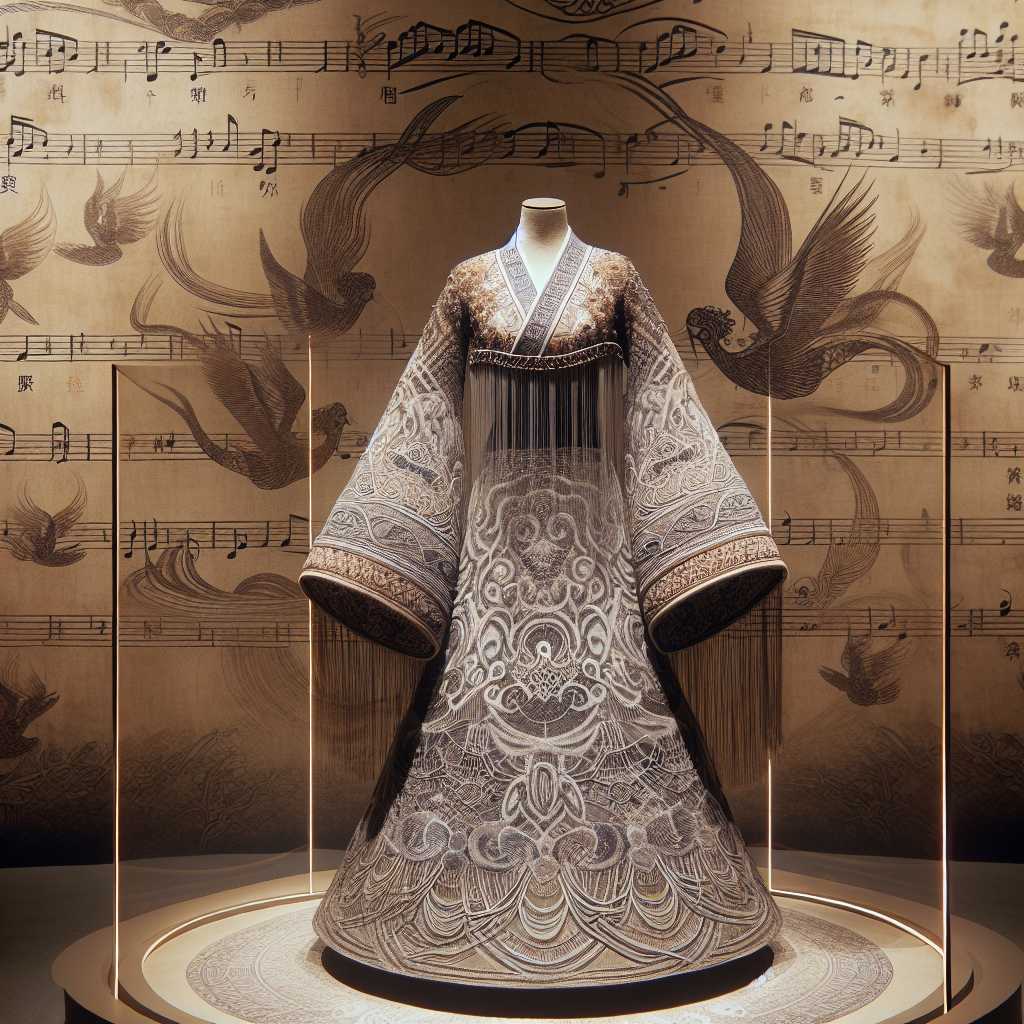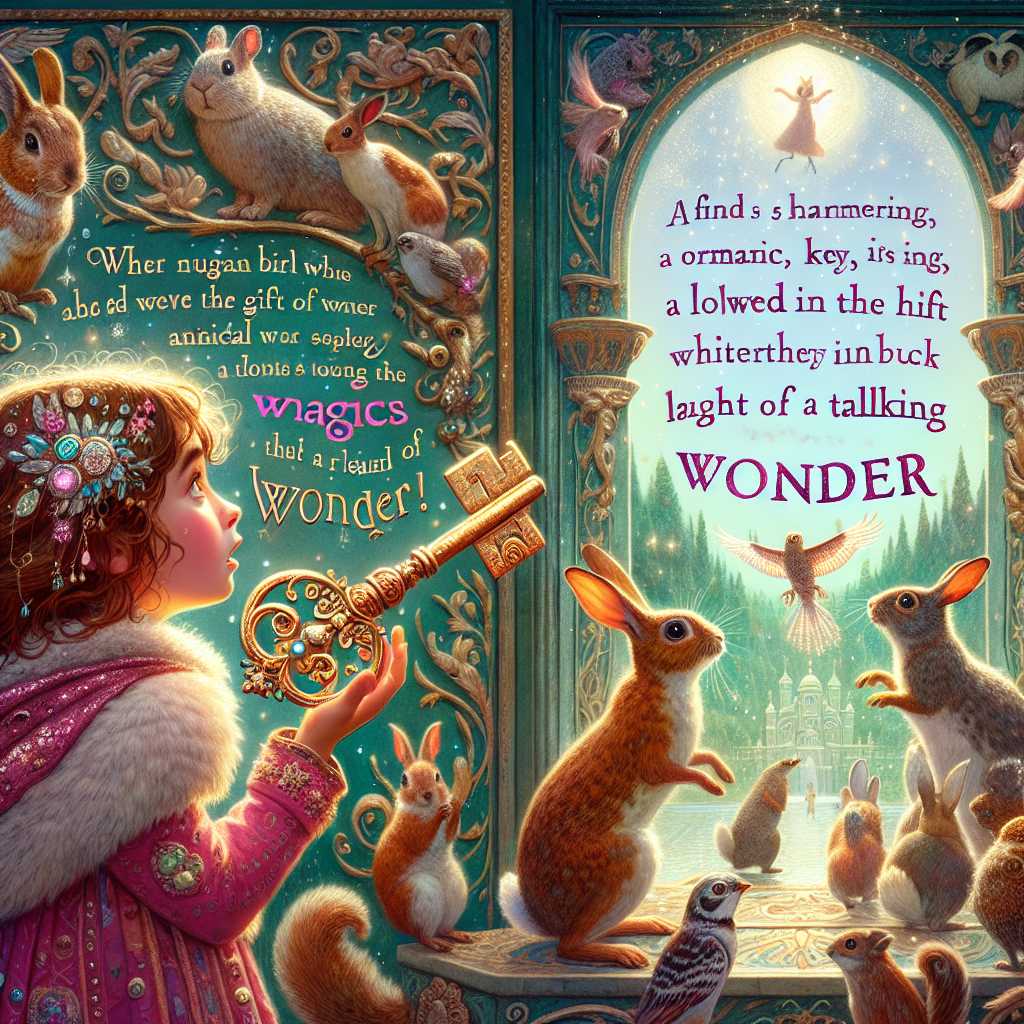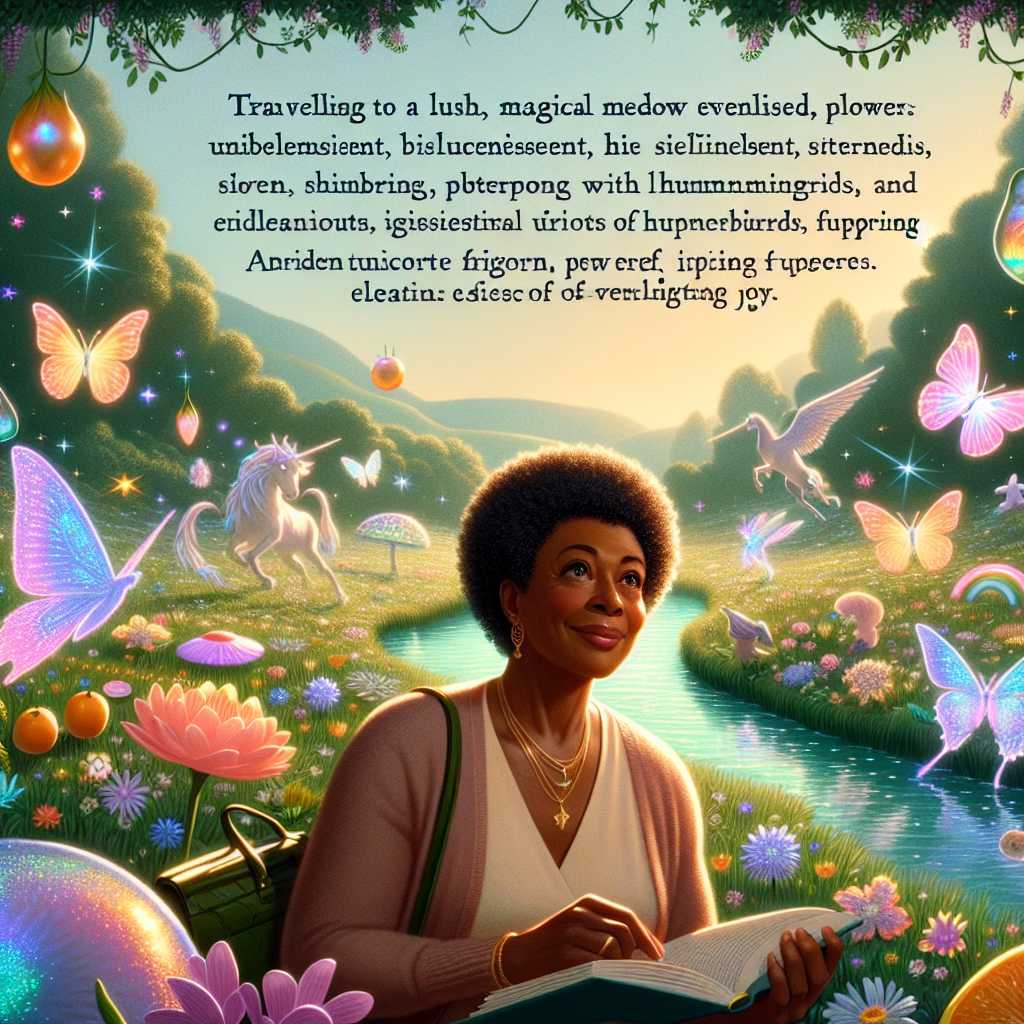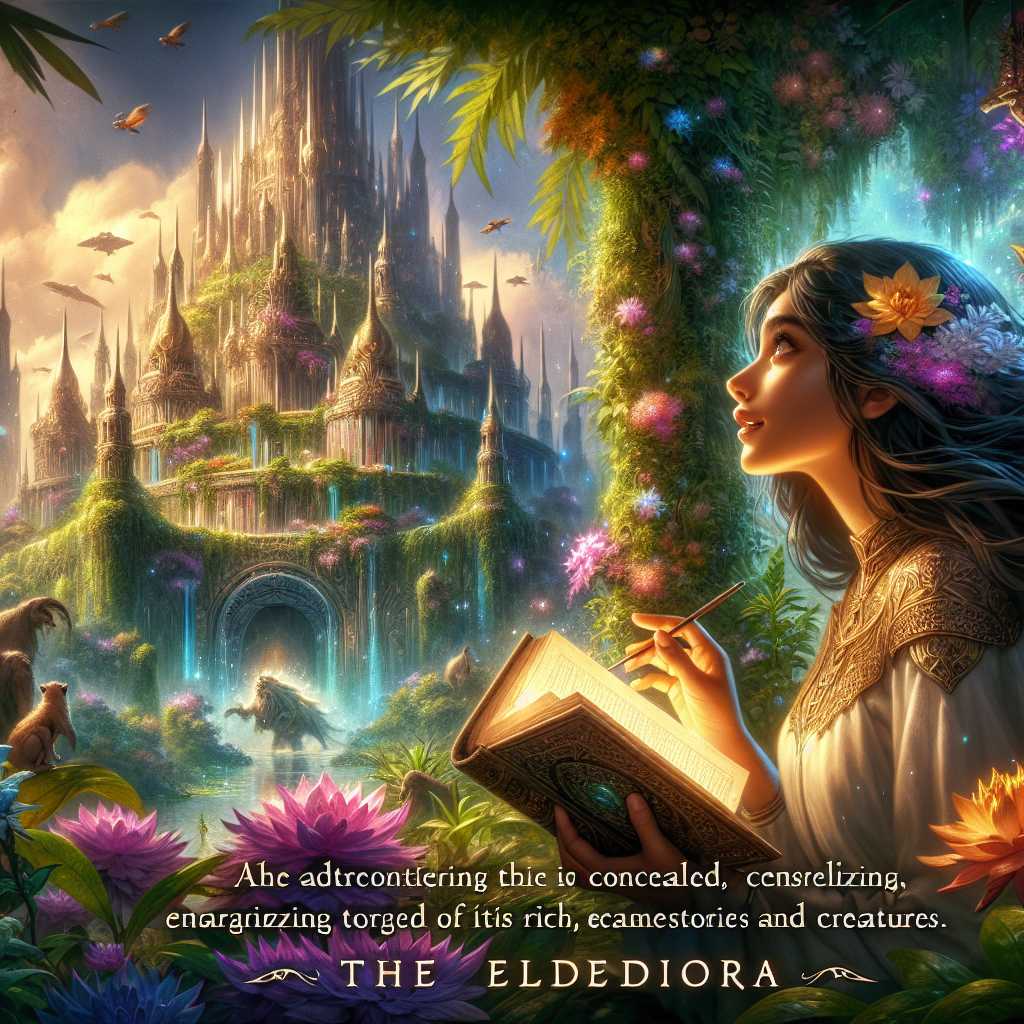
In the enchanting tapestry of ancient China, where mountains kissed the skies and rivers strung like silver threads across the land, there existed a small village known as Huanggong. It lay nestled amidst lush hills where the scent of magnolia brewed into the morning mist. The people of Huanggong were renowned for their craft, weaving silk that rivaled the beauty of the moonlit lake.
Amongst the villagers, there lived a master silk weaver named Mei Lin. Her hands, though calloused by years of labor, spun silk so fine that it whispered under the breath of the wind. Mei’s fame spread far beyond her village, for she possessed a rare gift—the ability to weave the dreams of those who laid eyes upon her creations. Her most cherished possession was a loom handed down through generations, said to carry the spirit of dragons in its wood.
One brisk autumn, as leaves danced down from ancient ginkgo trees, a messenger arrived from the Imperial City. Clad in robes of deep vermilion, he bore a message from the Emperor himself, seeking Mei's unparalleled skill to craft a gown for the Emperor's beloved daughter, Princess Li Hua.
Bowled over by such an honor and opportunity, Mei set to work immediately. She spent her days and nights at the loom, her fingers a blur of motion and magic. As she worked, villagers could hear her humming a haunting melody, a song that wove through the silk like a river through the valleys, carrying with it an ethereal beauty.
**“With each thread, a dream,”** she murmured to herself, a mantra older than memory. She wove tales of love and longing, adventures beneath starlit skies, the gentle swell of waves, and the distant mountain’s call—all into one magnificent tapestry.
“The silk sang to her as old friends do—a conversation without words, where each thread became a world unto itself.”
The day of completion drew near, and Mei put the final touches on her masterpiece. However, as she stepped back, her heart trembled; for the silk garment captured so much beauty, it seemed to contain a life of its own. Yet, an unshakable sorrow filled her soul. For in giving this part of her art away, she felt she was surrendering a piece of herself that could never be reclaimed.
On the designated day, the Emperor’s envoy appeared once again. This time, accompanied by Princess Li Hua, whose eyes sparkled like the first rains upon jade leaves. With reverence, Mei presented the finished gown. As Li Hua slipped it on, a collective gasp arose from the small gathered crowd, for it seemed as though the gown illuminated the very air around it, each thread shimmering with captured sunlight and shadow.
Overcome with gratitude, Princess Li Hua asked, **“What may I grant you in return for this unparalleled gift?”**
Mei bowed deeply and said, **“Your Highness, my reward is but to witness the joy it brings you and the hope that my art endures in this world.”**
Moved by Mei's humility, the princess placed a delicate jade pendant in her hand—a token of gratitude and a symbol of enduring artistry. Yet, Mei could not shake the soulful melody that seemed to linger, calling to her as the gown was spirited away to the palace.
Days faded to weeks, and the warmth of accomplishment waned. Mei found herself unenchanted by the loom that had once been her life. The threads held their usual opulence, yet to her eyes, they lay dull and lifeless. She longed for the song that had once been her companion.
The villagers, noticing Mei's withdrawn demeanor, gathered to offer support, baring gifts of food and flowers. They encouraged her, expressing how her art had always inspired them. But within the quiet echo of their gratitude, Mei found only the hollow notes of a distant tune.
Then, one moonlit evening, as the silken thread of time whispered to close another chapter, word came from the Imperial court. A messenger arrived bearing not summons, but tales—tales of how the Princess, while wearing Mei's gown, began to hum a haunting melody, one that matched the very song Mei had sung while creating it.
Realization washed over Mei like the evening tide—her song had journeyed with her creation, to live within it, to serve as its eternal voice. Although she could not hear it here, it sang heartily at the palace, dancing through the halls as it once danced around her loom.
Replacing sorrow with solace, she understood finally that though the art was gone, its spirit lived on. Her legacy was one not dictated by possession but by presence. The village rejoiced, celebrating Mei, who recognized now with clear certainty that each thread in life’s grand tapestry contains a story that echoes far beyond its creator, resonating through time and whispers of memory.
Thus, Huanggong continued to sing the story of Mei Lin—the silk weaver whose song was painted upon the fragile, enduring threads of an emperor's daughter’s gown, an endless melody tucked within the folds of history itself.










